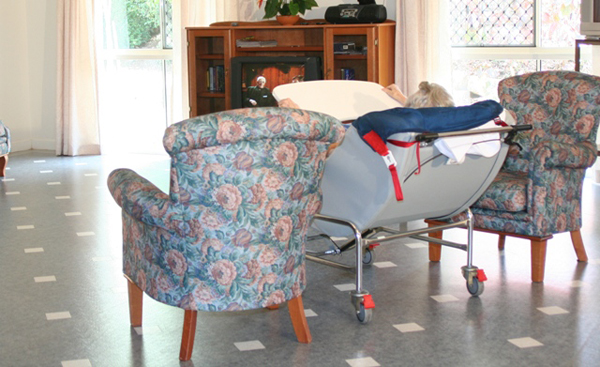Dementia Care
Almost 200,000 Australians are believed to be suffering from dementia and the prevalence of the disorder is growing in line with our ageing population. The most common type of dementia is that caused by Alzheimer's Disease, but there are also several other types. In the early stages, people with dementia and their families may need to make adjustments to their lifestyles in order to maximise safety and security. People with dementia often require expert and specialised care when the disease progresses to its later stages, and although this may be the point when they require residential care, more than half of Australians with dementia live in the community with support.
Dementia is a rather broad term, but mostly it involves cognitive problems, deficits, normally with short term memory and it's a progressive situation in most people.
There are many behaviours that result from dementia. Probably the most impacting behaviours are things like wandering, absconding, aggression, agitation, but, I guess, with people with dementia, dementia happens to people who come from a lifetime of experiences, so it can be very individual too. Some people hoard things, some people become very busy at different times of the day. Often you can relate it back to what their past life has been like as to where the behaviour is coming from.
Other things that carers should be mindful of is that everyone has a bad hair day, and that doesn't stop just because the person has dementia, and they have to recognise that sometimes people are angry, happy and sad, and when you take away someone's ability to actually talk about it, you have to have the skills to get behind the behaviour.
It’s really important when someone has a mission, has a reason, wants to go somewhere, that you actually go with them. You’re in their time and in their reality. And often it is not hard to distract somebody, whose intent on doing something, by walking with them, and becoming part of what their reality is, and then you can often turn their conversation round to - if they are wanting to go and meet somebody, who are they going to meet and when did they see them last? Will they know where to find them? Would they like to sit down here and have a chat about it? Perhaps a cup of tea would be good. We could come back later and do this. It’s not sometimes difficult to redirect people, so long as you are not trying to do it in a way that’s stopping them from doing what they want to do and what they want to achieve.
So we designed the nurse’s station as a back-of-house but with good visual ability across the communal areas. All the paths that are in the gardens lead to doors, and those doors are accessible. So its important that if people need to walk, that it’s purposeful things that they - you know, a path usually leads somewhere and it can be very frustrating if it just comes to a standstill. It’s important to have resident’s rooms that they feel comfortable in, and the best way to do that is to make the familiar surroundings that they have at home; recreating that gives them a sense that this is their place. It also is really good for relatives, to be able to create that place when someone has moved away from home, often if you’ve got a carer or a husband or a wife, that’s spend a lifetime looking after that person, for them to be able to go a re-create something that they know the person will enjoy is good for them as well.
Nurses in residential aged care facilities become quite familiar with each resident and can often predict and prevent behavioural problems associated with dementia. There are also many environmental issues that can impact on the sense of security and comfort that a person with dementia experiences.

Thinking Challenge
In the video, Deirdre discusses some of the behaviours that may be problematic in dementia. The documents in the links below outline some practical strategies for the prevention and management of these behaviours.
- Which of these strategies were discussed or illustrated in the video?
- What are the most common co-morbidities in people in residential aged care who have dementia?
- In the first link below, strategies for effectively screening for and managing wandering behaviours are outlined. Which do you think would be the most practical and effective?




